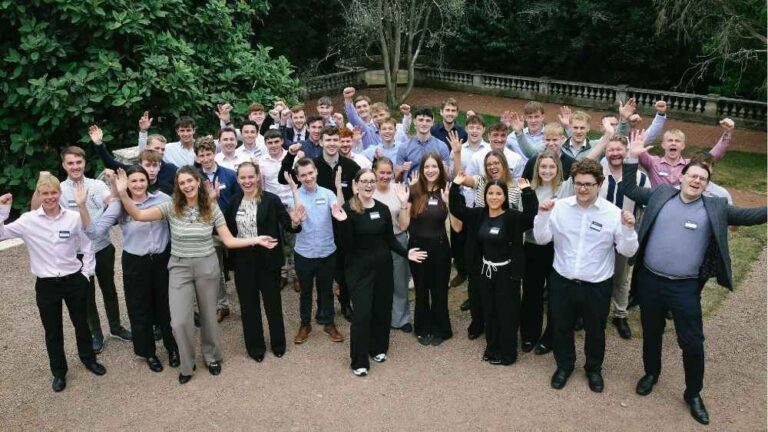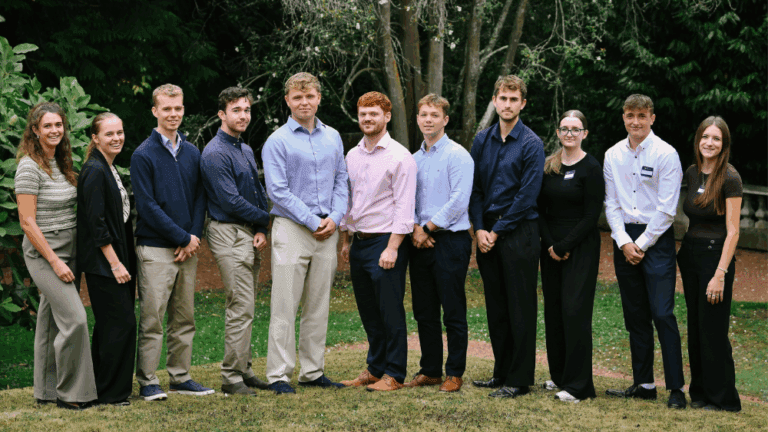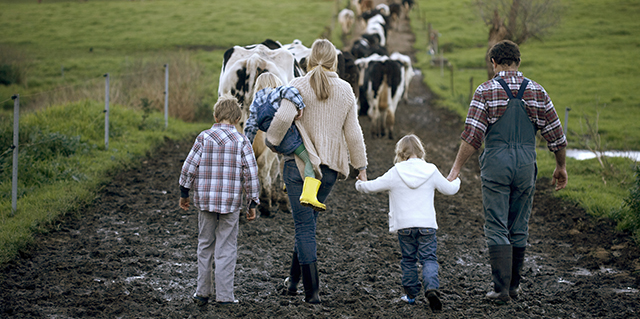
Meet the food & drink team: Nick Farrant
We speak to head of the firm’s food and drink sector, Nick Farrant, to find out why he chose accountancy, a bit about his role and what he gets up to outside of work.

Tell us about your role as head of the firm’s food and drink sector
My role as head of food and drink is one that I’m really enthused about, it’s one that I’ve done for a few years and it develops each year. There are a few levels to it:
- Direct client work with a variety of clients in the food and drink sector, of all shapes and sizes
- Marketing and business development – thinking about how we approach the market and what can we offer to the market?
- Putting together a food and drink team and developing the services we can offer and how we can best deliver those around the firm
It’s a great sector to be involved in; food and drink is important to the part of the world that we operate in and to the UK as a whole. This firm has got a great set of skills and experience in one of the largest, most dynamic sectors, whether it’s R&D, corporation tax, employment taxes, audit assurance, and corporate finance.
At PKF Francis Clark, what would you say the food and drink sector was defined as?
We act for everything from a small startup ‘kitchen table businesses’ through to national groups including AIM listed clients. What we view as the food and drink sector is:
- those primary producers that have started to do some processing. So that could be:
- Dairy farmers who have started some level of processing of the raw milk
- A trawler fleet that starts some processing before fish gets to market
- Manufacturers – taking the raw ingredients and creating a product that can either be sold direct to consumers, to other processors, wholesalers or food service/hospitality
- Trading and wholesale – whether that’s international trading, retail, foodservice or wholesale in the UK
- Hospitality – restaurants, bars, and pubs
We fit well with all those areas because of the different challenges those face and services and experts that we have – we also link with our agriculture and leisure and tourism sector teams in particular.
What type of clients do you work with?
Whilst it represents a large part of my work, I don’t just work in the food and drink sector so I get a broad range of experience and best practice from across different manufacturing and various service industries as well as leisure and tourism groups, professional sports, financial services, healthcare and charitable groups.
Typically, I work with corporate clients (turnover over £10 million) and cover the full length of the supply chain – from restaurants and pubs, manufacturing, and import/export international trade type entities to primary producers, processors, and fisheries. As well as those, farm shops and online e-commerce businesses have grown or sprung up over the last 24 months.
Whilst I focus on the corporate, I have some smaller entities but are ones that have a corporate outlook, some complex needs or best relationship fit.
What do you enjoy most about your role?
It’s the variety. I can be talking to a business that processes dairy ingredients, one that is sending tens of millions of pounds of cheese over to the United States or an ambitious but a small ice cream manufacturer all in the space of one day.
These businesses have had huge challenges and massive opportunities. Some, especially those online and some in manufacturing, have had a really good time financially but faced other logistical and people challenges. Others have had a really difficult time, such as restaurants etc. We are accountants, tax advisors, and business advisors – that ‘business advisor’ piece over the last two years has been paramount – respecting and spending time with clients and having some wide ranging, often urgent discussions.
There are worse things to do, quite honestly, than get to know food and drink businesses.
What do you think are the biggest challenges the food and drink sector is currently facing?
People are key. Not all businesses are employing hundreds of people, and even if a business has been doing well, access to people over the last couple of years has been a real challenge.
Brexit and COVID – It’s difficult to truly separate these two challenges a lot of the time: scarcity or unreliability of supply of resource, pricing of supplies and increased delivery times, costs and bureaucracy all play a part. Brexit brought customs, duties, and VAT challenges. The number of conversations I’ve had in the last couple of weeks about the availability of raspberries, you wouldn’t believe!
Aside from all that, businesses have their compliance responsibilities to handle and ensuring they’re paying the right amount of tax, meeting their audit regulations etc regardless are some of the obvious ways we get involved.
Doing the audits and accounts gives you an insight to be able to support and identify some of the other challenges or opportunities to help. We have worked with businesses on securing growth capital funding or even exits though our Corporate Finance Team, supporting on Customs Duties, have secured R&D tax credits for a wide range of clients and our employment taxes team have been supporting various clients when it comes to CJRS. The list goes on…
Why did you choose to join the accountancy profession?
Honestly, I fell into it!
I went to university to study history, couldn’t quite bear to leave university, so did an international business management master’s degree in part because what a lot of the other lads in the rugby squad were doing.
After university I went travelling, came back and applied for different grad schemes. I was convinced to apply for accountancy jobs as well and I got interviews. When returning from travelling, I worked as an office manager / bookkeeper for a charity in Taunton before starting my training contract with a national firm and working for a big four firm. I joined PKF Francis Clark in April 2011.
What do you enjoy doing outside of work?
Most of my time is spent either walking three dogs up on Exmoor or driving four kids around, whether that’s to college, football, cricket or the occasional beach trip to find some surf. Then coaching a bit of football, rugby and cricket as well. Gone are the days of me playing!
I do enjoy going out, finding new places to go and eat with my partner and meeting the people that run them, so that’s always good fun.
I’m in my last year on the board of Somerset Chamber of Commerce having been a non-exec finance director over the last six years. It has been interesting with Hinckley Point Development, Brexit and COVID!
Since 2019, I’ve been honorary treasurer of Somerset County Cricket Club … Cricket is a real passion of mine and it’s a real honour to bring my work experience and skills to the Club. Within that, there’s the food and drink and catering aspect to it as well, which gives me some insight from the other side of the hospitality table.
What is it like to work for PKF Francis Clark?
I’ve been at the firm for nearly 11 years and a partner for nearly eight of those.
The firm provides genuine opportunities for a wide range of people and has a range of expertise available to our clients/market that is hugely competitive. We support clients of all sizes with a range of different needs. It’s very much a genuine partnership and that’s beyond the partners and includes staff as well. There’s an element of hierarchy but it’s nowhere near as corporate or hierarchal as other firms.
I know that if I need the support, I can turn around and get it. Equally, if people from other offices need my support in the food and drink sector, then I am always happy to help.
We’ve got huge growth potential as well. There’s a big market opportunity but also a really pleasing focus on client service and approaching that market respectfully and professionally. It’s not growth for growth sake.
Read more:
How can we help businesses in the food and drink sector?
For more information about what it’s like to work at PKF Francis Clark, visit our careers website.
Written by












